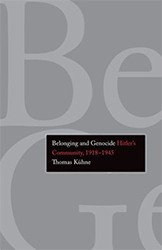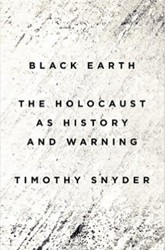David Karmi’s family lived in the Hungarian city of Sata Mare. His father served in the Austro-Hungarian army during World War I, but that meant nothing once the Nazis assumed power. The family was exiled to Poland, where relatives refused to help them. Returning to Hungary, they found their home and possessions seized and they were deported to Auschwitz.
At the camp, David was separated from his family. He survived not only Auschwitz, but a second camp near Warsaw and a death march to Dachau as well. His quick wits, ability to make friends, and his optimism helped to keep him alive. The first part of the book keeps readers turning pages as they follow his ordeals in the camps. His memoir has a positive tone, more like Anne Frank than Elie Wiesel or Primo Levi.
Once he leaves the camps and immigrates to Palestine and, later, to the United States, the story is far less interesting. His real-estate career is not exciting. Overall, though, this is a nice contribution to the literature of Holocaust memoirs.
Related content:




